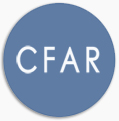Challenge to Health Professions Council
In February 2007, the UK Government published a white paper (‘Trust, Assurance and Safety – The Regulation of Health Professionals in the 21st Century’ [10] ) which stated that "The government is planning to introduce statutory regulation for…psychotherapists and counsellors…" [11] and that "…psychotherapists and counsellors will be regulated by the Health Professions Council, following that Council’s rigorous process of assessing their regulatory needs and ensuring that its system is capable of accommodating them". [11]
As a response to this proposed regulation by the Health Professions Council (HPC), [12] [13] [14] CFAR was one of the organisations that contributed to the Maresfield report [15] [16] which opposed the suitability of the HPC as a regulating body for the professions of counselling and psychotherapy in the UK. [17]
Following on from this report, CFAR was one of six organisations that called for a judicial review [18] of whether or not the HPC had, in fact, fully assessed the regulatory needs of the professions or properly determined if it was the most appropriate body to provide such regulation. [19] [20] On Friday 10 December 2010, a Judicial Review Permission Hearing [21] under The Hon. Mr Justice Burton at the Royal Courts of Justice found against the Health Professions Council [22] [23] [24] and granted permission to proceed towards a Judicial Review of the proposals for regulation under the HPC. On 16 February 2011 the UK government — in its command paper ‘Enabling Excellence’ [25] — halted the project to regulate counselling, psychotherapy and other talking treatments via the HPC.
This page is based on this
Wikipedia article Text is available under the
CC BY-SA 4.0 license; additional terms may apply.
Images, videos and audio are available under their respective licenses.

